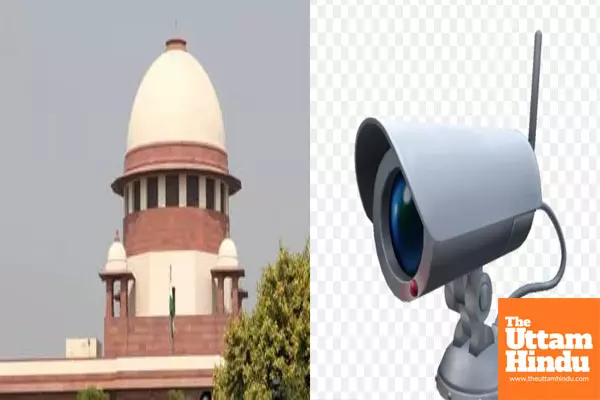Supreme Court Upholds Right to Privacy: CCTV Cameras in Shared Homes Require Consent

New Delhi (The Uttam Hindu): The Supreme Court has declined to interfere with a Calcutta High Court judgment that ruled installing and operating CCTV cameras inside a shared residential property without the consent of all co-occupants infringes on the right to privacy. The case, Indranil Mullick & Ors. vs. Shuvendra Mullick, involved a dispute between two brothers over the installation of cameras to protect valuable art and artifacts in their family home.
Background of the Case
The petitioner, Indranil Mullick, had installed 15 CCTV cameras to safeguard the artifacts, but his brother, Shuvendra Mullick, objected to five cameras that were placed inside the residential areas without his consent. The Calcutta High Court restrained the operation of these five cameras, citing a violation of Shuvendra's right to privacy.
Supreme Court's Decision
A bench of Justices Dipankar Datta and Manmohan dismissed the appeal, stating that 10 cameras would be sufficient to protect the artifacts without infringing on Shuvendra's privacy. The court emphasized that the cameras should not point towards the interior of the house, ensuring the protection of both the artifacts and individual privacy.
Key Points of the Judgment
Right to Privacy: The Supreme Court upheld the Calcutta High Court's finding that installing CCTV cameras without consent in a shared residential property violates the right to privacy.
Balancing Security and Privacy: The court suggested that 10 cameras would be enough to protect the artifacts, striking a balance between security concerns and individual privacy rights.
Consent Requirement: The judgment reinforces the importance of obtaining consent from all co-occupants before installing surveillance devices in shared living spaces
